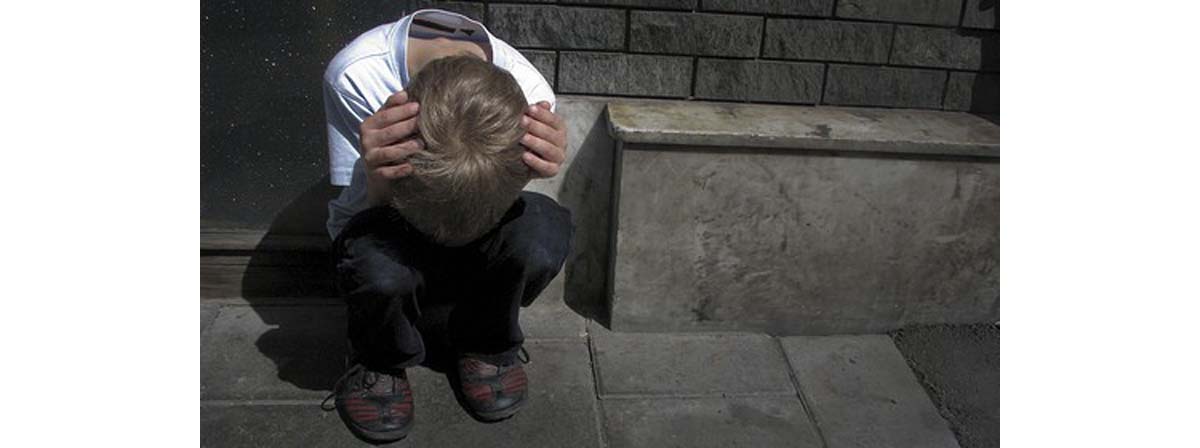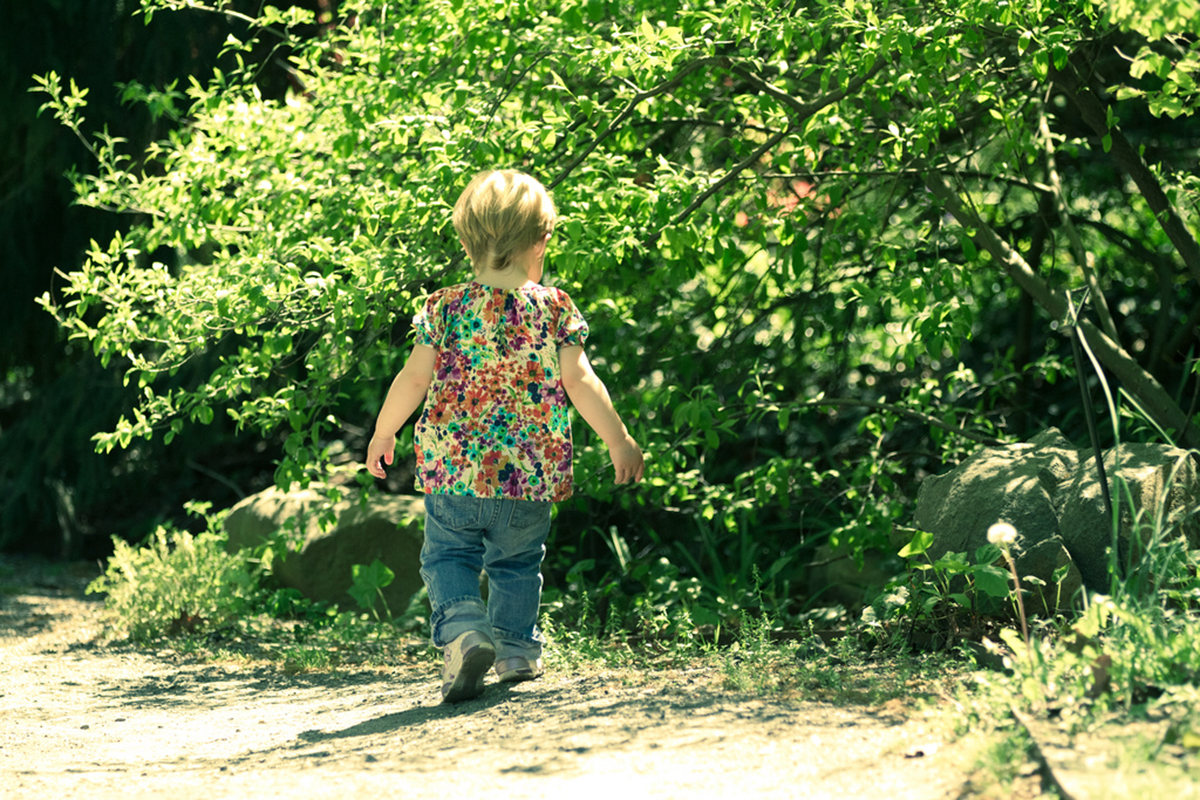Clinical depression doesn't have any single cause. Some people become depressed without an obvious trigger, but events like illness, stressful events, loneliness, pregnancy or being a new mom, and alcohol abuse can often trigger depression. A person's family history and personality also play a large role.

There is no "typical candidate" for depression — people of all ages and walks of life become depressed. That can include children as young as five. Childhood depression is a problem that deserves to be taken seriously. According to the British National Health Service (NHS), it's becoming increasingly common in the UK at least.
The UK's National Institute For Health And Care Excellence (NICE) has recently released new guidelines that should help improve the care of children and young people with depression. NICE notes that depression has a wide variety of symptoms and affects individuals in different ways. Depression can be mild, severe, or anything in between.
Nearly 80,000 children in the UK suffer from severe depression, NICE reported. That includes 8,000 children who are under 10 years old!
Those are significant numbers that should be enough to bring this problem to anyone's attention, and childhood depression is certainly not a UK problem alone. What are the signs, symptoms, and triggers of childhood depression? And what does NICE have to say about its treatment?
Depression In Children: The Signs
Every child is sad and irritated at times, and most crave solitude at least occasionally. Persistent sadness, self-isolation, and no longer enjoying the activities they previously loved are more worrying signs. Childhood depression can easily be missed by healthcare providers who are quick to pass the symptoms off as normal childhood stresses or exaggeration, and they may even you are simply an "overprotective parent".
Even parents can miss a child's depression, though — if your child seems "off" after coming home from school, you may think she's simply exhausted or had an argument with her friends. If you also have a busy and stressful life, it may not even occur to you that your child might be depressed.
So, here are the tell-tale symptoms to watch out for:
- Moodiness and irritability
- Sadness, sometimes including lots of crying
- Withdrawing from you, friends, and social activities
- A higher sensitivity to criticism and rejection
- Sleep problems and complaining of fatigue or low energy
- Decreased performance at school or in other areas, and trouble concentrating
- You may not notice it, but the depressed child can struggle with feelings of worthlessness, guilt, hopelessness, suicide and self-harm
As with adults, not all depressed children manifest all signs of depression and depression can be mild, moderate, or severe. Some of these symptoms are also signs of other psychological and physical conditions, but when they persist for a longer period of time and don't pass naturally, a trip to your pediatrician is always warranted.
If they don't take you seriously for whatever reason, then don't hesitate to seek a second opinion.
Parents can, of course, always talk to their kids about how they are feeling. Having a secure, loving relationship means that your child might feel comfortable sharing his true feelings — but certainly not always. Your child's depression may even be due to some traumatic event that you didn't know took place. Bullying at school or sexual abuse are examples of traumatic events that children may prefer to hide even from their parents.
Don't try to solve the situation alone of it's clear that your child is depressed, but do reach out and make it clear that you are there to support your child and listen whenever he wants to talk.
What Causes Childhood Depression, And How Is It Treated?
Childhood depression can be caused by an almost endless variety of negative factors within the child's environment. It can be related to physical health, unpleasant or traumatic events such as a death in the family, biochemical disturbances and a family history. NICE notes that depression often occurs in more than one person within the same family unit.

NICE lists individual risks and notes that current evidence suggests genetic factors play more of a role in the onset of adolescent depression than in child depression. No specific "depression gene" has been found to date. A highly emotional temperament is more likely to be a cause of depression in children and young people, the Institute says. Biochemical factors like abnormal serotonin levels can lead to depression as well.
Cognitive styles also play a role — kids who are self-devaluating or dwell on certain thoughts are more likely to become depressed.
Which children are at the highest risk of depression? The groups of children NICE identified as being at a particularly high risk for mental health problems including depression are:
- Children in care
- Refugees and asylum seekers
- Homeless children
- Young offenders — who are also at a high risk of suicide
- Maltreated children, including those suffering from "hidden maltreatment"
- Physically or mentally impaired children and those with learning difficulties
Experts noted bullying, including cyber bullying, as a risk as well.
Treatment Recommendations
The new guidelines especially focus on the need for immediate access to psychological therapy like cognitive behavioral therapy, interpersonal therapy or family therapy, and they recommend that this treatment should last a minimum of three months. Given the current tendency to hand antidepressants out like candies, this is a hugely important recommendation.
NICE says antidepressants should never be offered to children and young people with moderate to severe depression unless they also receive psychological therapy.
Andrew Dillon, Chief Executive of NICE and Executive Lead for the childhood depression guidelines, says: "Psychological treatments are the most effective way to treat depression in children and young people. It’s important that children and young people taking anti-depressants do not stop taking them abruptly, but we would advise people to talk to their GP at their next regular review about whether a psychological treatment may be a more effective treatment option."
These should be treated at the same time as the child "if the child or young person's mental health is to improve", they note. First-line healthcare professionals, teachers, and other community workers should be trained to detect the signs of depression, NICE believes.
These guidelines may have been created to function within the UK's healthcare system and offer specific recommendations on which type of healthcare professional should offer services and where, but there is no doubt that mental health professionals, family doctors, and others in other countries can learn much from them. Depression among children and young people is a serious problem that concerns society as a whole. Let's do the best we can to identify sufferers and help them overcome their depression.
- Photo courtesy of Tjook by Flickr : www.flickr.com/photos/tjook/5111553020/
- Photo courtesy of Guian Bolisay by Flickr : www.flickr.com/photos/instantvantage/5713333950/


Your thoughts on this